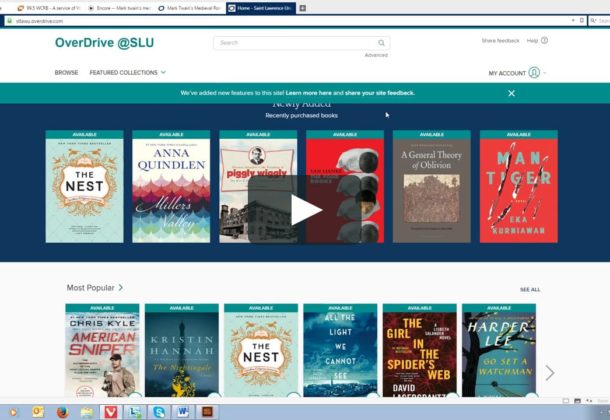e-Book “Embargo” Ignites Librarians

Beginning November 1, 2019, Macmillan Publishers allows libraries — no matter the size of their city or town — to purchase only one copy of each new e-Book title for the first eight weeks after a book’s release. Libraries are hopping mad about it.
The American Library Association calls Macmillan’s new sales policy an “embargo.” The organization sees it as an obstacle to accessibility and a countermanding the primary mission of libraries, which is to beget readers. In the months leading up to the eight-week, one-copy window, the ALA gathered 160,000 signatures on a petition opposing the decision and presented them to the Macmillan CEO days before the policy went into effect.
The librarians’ efforts to alert readers to even longer waits for new releases include a hashtag — #eBooksForAll — to banners across the top of the portals into libraries’ e-Lending holdings. That is root of the problem: seamless e-lending. For e-book readers, it felt a long time coming. But once it arrived, for e-readers, it was a seamless move to click on a purchase site to click on a lending site. The read feels the same.
“It seems that given a choice between a purchase of an ebook for $12.99 or a frictionless lend for free, the American ebook reader is starting to lean heavily toward free,” Macmillan CEO John Sargent wrote in a July 2019 letter to the publisher’s authors, illustrators, and agents, describing the company’s new policy.
Macmillan has been the only major publisher to address this yet another disruption in the traditional publishing economy in this way. However, whether other follow suit or not, his July letter is testimony to the popularity of the this latest disruption and the likelihood the choice of “free” content will continue to overtake paid content.
“The growth in ebook lends through libraries has been remarkable. For Macmillan, 45% of the e-book reads in the US are now being borrowed for free from libraries. And that number is still growing rapidly. The average revenue we get from those library reads (after the wholesaler share) is well under two dollars and dropping, a small fraction of the revenue we share with you on a retail read,” Mr. Sargent wrote.
In a longer, more nuanced letter to the ALA, Sargent elaborated on the decision. But the ALA responded, rejecting the premise, writing, “Whether intended or not, delaying or denying access to content hurts libraries and readers. An embargo is the wrong answer to an unsubstantiated problem that no other major publisher seems to face.”
The ALA contends Macmillan’s policy change limits libraries’ ability to provide access to information for all. It particularly harms library patrons with disabilities or learning issues, according to the BooksForAll website where they “ask you to share your experiences with the embargo now that it is in effect. Screenshot your waitlist and share your story on the #eBooksForAll hashtag about how the embargo is impacting your community.”
Sargent wrote at length to the ALA, trying to explain what went into the decision and said, “We are great believers in libraries. We have supported library programs for decades. We realize the role libraries play in discovery, in literacy, and in building readers.”
But he also wrote, “We believe the very rapid increase in the reading of borrowed e-books decreases the perceived economic value of a book. I know that you pay us for these e-books, but to the reader, they are free,” Sargent wrote.
“This causes a problem across the publishing ecosystem (authors, illustrators, agents, publishers, libraries, retailers, and readers). We are trying to find a solution.”























